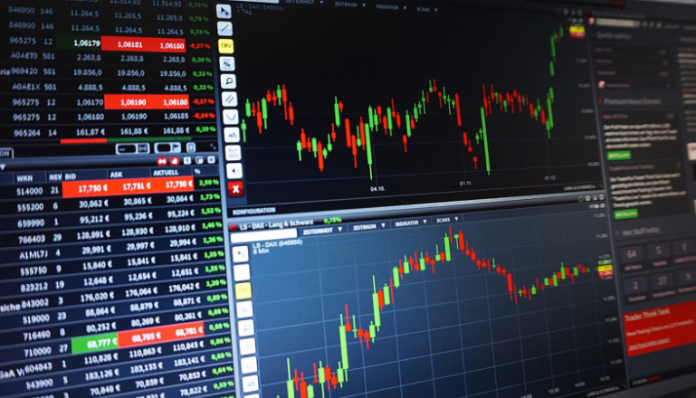

In 2015, Martha Stewart, a famous businesswoman and TV personality, sold her brand name for only a fraction of its original worth. Several analysts attributed that the devaluation to Stewart’s widely reported legal troubles concerning insider trading. In 2004, Martha Stewart was imprisoned for (05) months at Alderson in West Virginia for related charges. Martha Stewart allegedly obtained non-public knowledge that a particular stock investment was about to lose money, hence, she sold the stock early, i.e., before the announcement. This knowledge is known as “insider trading/insider information”. This particular information is only available to high-level executives or major shareholders in a company. It is illegal to use insider information to profit from potential stock exchanges as it disadvantages public stockholders and betrays the trust of investors, which is important for the health of the stock market.
In India, the first step towards the regulation of insider trading was taken in 1948. A committee was constituted under the chairmanship of Mr P.J. Thomas. Section 307 and 308 were introduced under the Companies Act, 1956 through the recommendations of the Thomas Committee which changed the way for certain mandatory disclosures by the directors and managers but were not effective in preventing insider trading.

The Sachar Committee and the Patel Committee was instituted in 1978 and Abid Hussain Committee in 1989. Based on the recommendations made by these committees Securities and Exchange Board of India (“ SEBI ”) (Insider Trading) Regulations, 1992 was brought into force and amended in 2002 as loopholes were revealed in Hindustan Lever Ltd. v. SEBI and Rakesh Agarwal v. SEBI , thereby, renaming it as SEBI (Prohibition of Insider Trading) Regulations, 1992 (“ 1992 Regulations ”). In 2015, SEBI brought SEBI (Prohibition of Insider Trading) Regulations, 2015 (“ Insider Trading Regulations ”). In 2018, SEBI constituted a committee under the chairmanship of Shri T.K. Viswanathan . On recommendations of the committee, SEBI made the latest amendment to Insider Trading Regulations in 2019.
The term ‘insider trading’ has not been defined either under the Insider Trading Regulations or 1992 Regulations. However, insider trading refers to trading/dealing in the securities of a certain company by any one person or class of persons who are the management of the company or connected persons based on knowledge of unpublished price sensitive information which is not generally available to the public. Such trading based on unpublished sensitive information is illegal.
Under the Insider Trading Regulations, an insider means any person who is either a connected person or anyone having access to UPSI. It is clear that anyone who owns or have access to UPSI to be considered an ‘insider’ regardless of how such person came in possession of such information.
Under the Insider Trading Regulation, connected person means :
Reg. 2(1)(d)(ii) of the Insider Trading Regulation provides the categories of persons which shall be considered to be deemed connected persons.
The Insider Trading Regulation states that the unpublished price sensitive information (“ UPSI “) means any information, directly or indirectly related to the company or its securities that is not generally available to the public, and which upon becoming generally available to the public, is likely to materially affect the price of the securities. Such information shall include the information relating to the following:
SEBI INSIGHT
Under the 1992 Regulations, the terms ‘price-sensitive information’ and ‘unpublished’ have been defined separately under Regulation 2(ha) and 2(k) of the 1992 Regulations, respectively.
In India, the other related provisions other than the Insider Trading Regulations which govern insider trading are Section 195 of the Companies Act, 2013, read with Section 12A and 15G of the SEBI Act, 1992 (“ Act ”).
Section 195 of the Companies Act, 2013 provides that no person, which includes any director or key managerial personnel of a company, shall enter into insider trading. This section also defines the terms ‘insider trading’ and ‘price-sensitive information’.
According to Section 12A(d) of the Act, no person shall engage in insider trading, either directly or indirectly. On the other hand Section, 15G of the Act imposes a penalty for insider trading which is not less than ten lakh rupees (Rs 10,00,000) but which may extend to twenty-five crore rupees (Rs 25,00,00,000) or 3 times the amount of profits which are made out of insider trading, whichever is higher.

The Insider Trading Regulations provides the following restrictions on any communication or procurement of UPSI and trading:
SEBI INSIGHT
In the matter of Samir C. Arora v. SEBI :
Issue: Whether Samir Arora was guilty of violating Regulation 3 of the 1992 Regulations?
SEBI charged Samir Arora concerning insider trading and barred him from the securities market for five (05) years. The Securities Appellate Tribunal (“ SAT ”) set aside SEBI’s order and held that since the information was false, the prohibition of non-disclosure under would not be attracted. SAT said that the information has to be true to constitute a UPSI and to attract the provisions of insider trading. SEBI then appealed in the Supreme Court and the Apex Court set aside SEBI’s appeal stating that Samir Arora was not trading during the period he was banned from participating in the securities market.

REGULATION (Insider Trading Regulations)